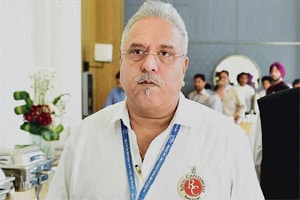In a defiant stance, United Breweries Group chairman Vijay Mallya on Thursday filed an affidavit in the Supreme Court proclaiming that banks had no right over information of his or his kin’s overseas assets as he was an NRI and these assets “were never considered either during granting or restructuring of the loan of the defunct Kingfisher Airlines (KAL)”.
The statement was in response to the SC’s direction that the embattled businessman disclose by April 21 the total assets owned by him and his family in India and abroad. The apex court had also sought an indication from him when he would appear before it.
Even though he is not really clear on the amount he is prepared to deposit in the court for a “meaningful negotiated settlement” and to prove his bona fides, he said that he was willing to submit a total of R2,920 crore including net sale proceeds of his 32.29% stake in United Breweries Holdings and R1,329 crore lying with the Karnataka High Court.
The liquor baron also pointed out “blatant discrimination” resorted by the bank consortium against KAL. He said that a restructured facility in excess of `40,00 crore was given by banks to state-run Air India though it had the highest non-performing accounts in the aviation industry.
Urging before the SC that he is entitled in law to protect his interests, he has sought permission to file the details of his overseas assets in a sealed envelope to the court on April 26, but wants the apex court to respect his “privacy” and keep the information confidential. According to Mallya, a “a non-resident Indian is not obliged to disclose overseas assets even in his income tax returns” and thus he claimed “privilege from disclosure of the information to any third party particularly in view of the prosecution/coercive measures initiated by the central government and Enforcement Directorate”.
The apex court had asked Mallya, who owes over `9,000 crore to around 17 banks, to deposit a “substantial amount” with it to “prove his bona fide” and that he was “serious” about meaningful negotiations and settlement.
Following pressure from the banks, the UB Group chairman on March 30 had offered to settle the loan debts of KAL, which ceased operations in 2012, by September this year. He had offered to pay `4,000 crore along with another an additional `2,000 crore, subject to settlement of a a $236-million lawsuit KAL has filed against aircraft engine-maker International Aero Engines, against total outstanding loan of over `9,091 crore as claimed by the public sector banks. Banks had rejected the offer.
Stating that KAL was a genuine commercial/business failure, Mallya in his affidavit denied that any loan advance to the defunct airline by any bank was misused or used for acquiring assets/properties in his or his family’s names.
“In order to dispel any apprehensions,” Mallya said that no funds from KAL, particularly advanced by petitioner banks, have been directly or indirectly been remitted overseas in the name of or for his or any member of his family. “On the contrary, the knowledge of banks and investigative agencies, from inception the UB Group of companies and its associates gave infused large sums of money in KAL by way of loans, equity participation and liquidation of securities offered to creditors/lenders of the airline aggregating to `6,107.53 crore, all of which has been lost or is incapable of recovery.”
According to him, he in his reply to the apex court has blamed the global economic meltdown in 2008 and general recession, including “higher sales tax on aviation turbine fuel in the aviation industry” for financial distress.
Giving details of the assets of KAL, the liquor baron said that Kingfisher House in Mumbai, which has been mortgaged with banks and is in their possession since February last year under the Sarfaesi Act, six aircraft (three owned and three leased) and two helicopters, valued at `497 crore, attached by service tax authorities in January 2013 and trademark and trade names and various movable assets like cars, etc, are already being auctioned.
Mallya said he and his three companies are not wilful defaulters, but have lost huge investments. He further said that he is “in all sincerity to try and work out a settlement with the banks by offering to deposit/pay monies with the extent possible and feasible from out of their funds”. However, he has so far not said anything about his presence in the top court, as sought by the lenders.
